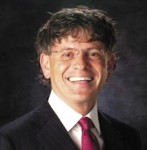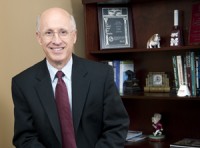Management guru Peter Drucker is attributed the quote, “Culture eats strategy for breakfast.” His statement is often repeated to emphasize the importance of culture in building a great organization. Companies like Southwest Airlines or Zappos are some of the most well-known examples of companies that have achieved tremendous success by nurturing their culture. Zappos CEO Tony Hseigh noted in a Harvard Business Review blog post, “Last year 25,000 people applied for jobs with us, and we hired only 250. Someone told me that statistically it’s harder to get a job at Zappos than it is to get admitted to Harvard, which says a lot about the strength of the culture we’ve created here.”
My interviewee this week, Paul McNeill, understands the importance of building a winning culture. McNeill serves as Senior Vice President-Wealth Management and Resident Director of Merrill Lynch in Ridgeland. McNeill grew up in Oxford, England and moved to Jackson, Mississippi when he was thirteen years old. After graduating from Millsaps College, he began his financial career back in England. However, he had the opportunity to return to Jackson in 1991 to join Merrill Lynch and has been there ever since. After building a very successful wealth management business at the firm, McNeill was asked to become Resident Director and manage the local office in 2013. McNeill decided to take on the position because of the confidence and faith he had in the team he would be leading, and because he could also continue to take care of the client relationships he had developed over the last 20+ years.
He shared, “My focus as Resident Director has been to create a great place for people to work. I want our team members to look forward to coming to work each day.” McNeill has been intentional about creating a great culture at the firm. One of the ways he does this is to be very open and inclusive with meetings and decisions. McNeill recognizes that the only way to truly take outstanding care of clients is to take outstanding care of your team members. While this may seem obvious, I have found in my business consulting practice that this principle is often not consistently applied. Too often, employers underappreciate and undervalue their employees and somehow expect them to deliver outstanding customer service. Unfortunately, that just doesn’t work. McNeill also noted, “I try to lead by example and not ask people to do things I would not do myself.” This is another way to show people that you value them as individuals which is critical to building trust.
McNeill is active as a community leader and devotes time to organizations such as the National Multiple Sclerosis Society (AL/MS), Mississippi Children’s Home Services and St. Andrew’s Episcopal School. He also was recently named to the Board of Trustees for Millsaps College. In an industry where people often move around between employers, McNeill has remained loyal and built a very successful business. I am sure that his understanding of how to develop a winning culture will serve his team and clients well for years to come.
[Originally published in the Mississippi Business Journal, May 30, 2014.] Read More




